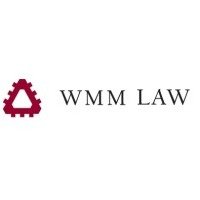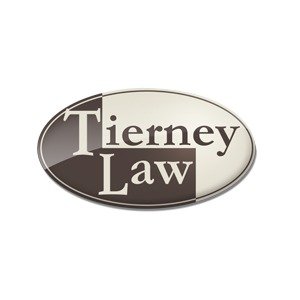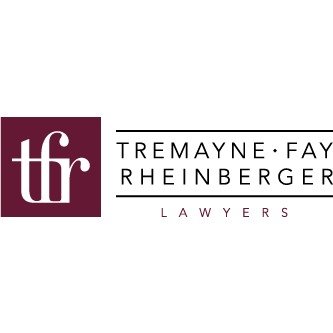Best Will & Testament Lawyers in Hobart
Share your needs with us, get contacted by law firms.
Free. Takes 2 min.
List of the best lawyers in Hobart, Australia
About Will & Testament Law in Hobart, Australia
In Hobart, the legal framework surrounding wills and testaments is governed by both state and commonwealth laws, aimed at ensuring that a person's estate is distributed according to their wishes after death. A will is a legally binding document that outlines the distribution of a person's assets and the care of any minor children. Creating a will is crucial in making sure that one’s estate is handled according to their preferences and in preventing legal conflicts amongst survivors.
Why You May Need a Lawyer
Many individuals may find themselves needing legal advice on will and testament matters for various reasons. Common situations include drafting a will to ensure it meets all legal requirements, needing guidance after the death of a loved one, handling complex estates, or facing challenges or conflicts regarding an existing will. A lawyer can help ensure the will is valid and enforceable, provide advice on tax implications, and represent you in probate court if necessary.
Local Laws Overview
In Tasmania, the local laws relevant to wills and testaments are mainly encapsulated in the Wills Act 2008 and the Administration and Probate Act 1935. Key aspects include the legal requirements for making a valid will, which must be signed by the testator in the presence of two witnesses. Further, the executor, who is responsible for executing the will, is granted specific powers and duties. If someone dies without a will, the laws of intestacy apply, which govern how an estate is divided.
Frequently Asked Questions
What is the legal age to make a will in Hobart?
The legal age for making a will in Hobart is 18 years. However, exceptions can be made if a person is married or if a court authorizes it.
Do I need a lawyer to write my will?
While it's not legally required to have a lawyer draft your will, hiring a lawyer is highly recommended to ensure compliance with all legal formalities and to avoid potential disputes.
What happens if I die without a will?
If a person dies without a will, their estate is distributed according to Tasmania's intestacy laws, which may not align with personal wishes.
How often should I update my will?
It's advisable to review your will every three to five years or after any significant life events, such as marriage, divorce, or the birth of a child.
Can I change my will once it has been written?
Yes, you can change your will at any time, provided you have the necessary capacity to do so. This is typically done by creating a codicil or drafting a new will.
What is a living will?
A living will is different from a traditional will and outlines a person's preferences regarding medical treatment and end-of-life care.
Who can witness my will?
Any adult of sound mind can witness a will, but ideally, they should not be beneficiaries or closely related to beneficiaries.
What is probate?
Probate is the legal process of proving the validity of a will in court and overseeing the distribution of the estate as per the terms of the will.
How are will disputes resolved?
Will disputes are generally resolved through mediation and negotiation. If these measures fail, the matter may proceed to court for a judicial resolution.
What is the role of an executor?
An executor is responsible for administering the estate, which includes collecting assets, paying off debts, and distributing the remaining estate as per the will.
Additional Resources
Several resources can aid those dealing with wills and testaments in Hobart. The Law Society of Tasmania offers listings of qualified lawyers, while the Public Trustee of Tasmania provides services for will preparation and estate administration. For more detailed legal advice, engaging a local lawyer is beneficial. Access to community legal centres can also provide assistance for low-income earners.
Next Steps
For individuals seeking legal assistance in Hobart regarding wills and testaments, it’s advisable to consult with a qualified estate lawyer. Gather necessary personal documents, including any existing wills, and make a list of assets and liabilities. Research and reach out to local legal experts and schedule a consultation to discuss your specific needs and concerns. These steps can help secure peace of mind knowing that your affairs will be in order according to your wishes.
Lawzana helps you find the best lawyers and law firms in Hobart through a curated and pre-screened list of qualified legal professionals. Our platform offers rankings and detailed profiles of attorneys and law firms, allowing you to compare based on practice areas, including Will & Testament, experience, and client feedback.
Each profile includes a description of the firm's areas of practice, client reviews, team members and partners, year of establishment, spoken languages, office locations, contact information, social media presence, and any published articles or resources. Most firms on our platform speak English and are experienced in both local and international legal matters.
Get a quote from top-rated law firms in Hobart, Australia — quickly, securely, and without unnecessary hassle.
Disclaimer:
The information provided on this page is for general informational purposes only and does not constitute legal advice. While we strive to ensure the accuracy and relevance of the content, legal information may change over time, and interpretations of the law can vary. You should always consult with a qualified legal professional for advice specific to your situation.
We disclaim all liability for actions taken or not taken based on the content of this page. If you believe any information is incorrect or outdated, please contact us, and we will review and update it where appropriate.
















